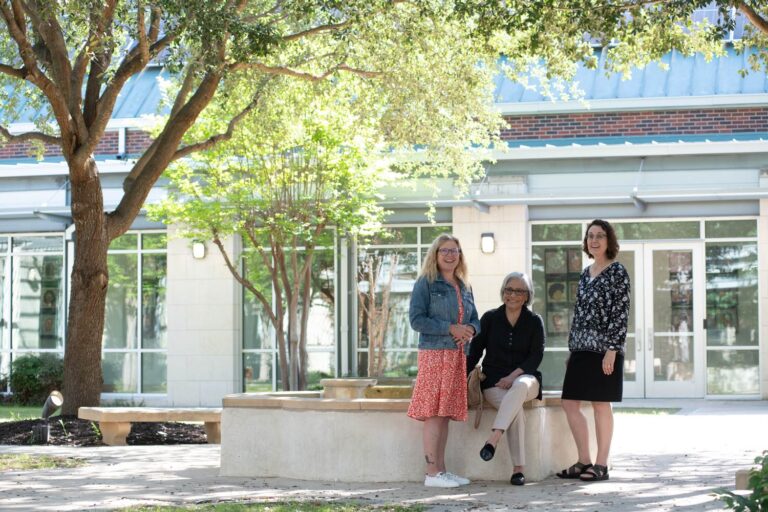NEW HORIZONS: BEYOND THE CUSTOMARY IN THEOLOGY AND SPIRITUALITY
Editorial Overview
This issue of Offerings allows the reader to explore from various perspectives the benefit, and even the wonder, of stepping beyond the comfort zones of one’s intellectual and spiritual life. New horizons can enrich theology and spirituality, can allow them to transcend what might otherwise linger as merely established patterns.
The article by Joseph LaBelle shows how the virtue of hope was manifested in various periods of Saint Eugene de Mazenod’s life. Mazenod was thus spared a kind of spiritual seclusion in the immediate context of his faith and was consistently drawn into a larger spiritual world open to a divinely designed future. From early adulthood he saw the wisdom of trusting in God’s guiding hand. For Eugene the ups and downs of life found their surest support in the divine presence itself. Whether dealing with the vagaries of ecclesiastical responsibilities, or moments of self-doubt, or undue disdain, or the threat of pestilence, he could, in his hope-filled theology, hold firm to the hand of Providence. Confident that his service to the French Church and to his Oblate community could find no greater sustenance, he consistently found renewed energy to carry on fearlessly.
Noting that the Bible shares with world literature generally an interest in the universe, Dianne Bergant, submits that the biblical writers’ interests in Earth, might too narrowly be taken as merely anthropocentric perspectives. A tripartite reading (considering the world within, behind, and in front of the text), however, reflects a biblical sense of “community of Earth,” and thus more eco-friendly perspectives that supplement and/or challenge established ones. We see that humans – no matter what their gender, race, ethnicity, etc. – are dependent on the life-giving and divinely granted water of springs. So we are challenged to use and manage water in conformity with social justice. Earth’s land is depicted as a divine gift that nurtures in a motherly way. So land, with thanks to God, should be utilized and shared responsibly. Realizing such truths requires a wider vision. Thus God draws Job out of a merely anthropological view of suffering and challenges him to a cosmological one, thereby helping Job “to look beyond his own questioning.” Such divine interrogation leads Job to a wisdom he could not previously fathom. Nature is finally seen as “a revelation of God.” Today we can do no other than let the Bible so broaden our views of the universe.
Pointing out that the very work of Systematic Theology is an ongoing project, Kenneth Hannon further observes that in the more specific form of Sacramental Theology, Systematics has moved beyond a mere historical-critical approach to Scripture and Tradition, and now includes a much broader range of interpretive methods. Such diversity well serves conversion, an indispensable component of discipleship. We understand with increasing clarity how celebrations of the Sacraments have variously adapted to specific cultures and thereby more cogently reflect appreciation for the meaning of sacramental experience. Theological elucidations of sacramental symbolism have likewise been diverse enough to both serve a variety of intellectual tastes and to nurture faith expressed in praise and worship. Thus the conjunction of Jesus, the Church, and the Seven Sacraments as sacraments – and as ever more probed and appreciated – serves deepened appreciation of the Sacraments’ ritual elements. Participation in the Church’s Sacraments can thus increasingly become faith’s wondrous experience of the ever-dawning Reign of God.
With ever-fewer Oblate college-level seminarians proceeding to the novitiate in the Philippines, Jaime del Rosario, provides evidence that a remedy lies in helping such “formands” (those in formation for ordination and/or vows) to broaden their theological and spiritual views of themselves and their vocations. Here an appropriate hermeneutical approach to the Johannine narrative of the Good Shepherd is the key element when correlated with detailed social-scientific, theological, and philosophical considerations. In their transition to higher levels of formation, the formands bring with them secular and materialistic conditioning they generally share with all other Filipino youths, conditioning essentially marked by an erosion of faith. Communication among these youths is typically more digital (cellphones, Internet) than personal. Breakdown of the traditional family is common. When prompted to bring such conditioning into reflective consciousness, formands take honest note of themselves, but with some regret. Spontaneity and creativity among them are rated positively, but fashionableness and individualism appear as negatives. Observations of formators and educators, Oblate and non-Oblate, corroborate the formands’ self-assessments, adding that the catechesis and faith-development of these young men is mostly modest, and that they typically need much support and direction in discerning the specifics of their vocations. As antidotes to such weaknesses, the formands themselves suggested: enhanced catechetical instruction, better opportunities for spiritual enrichment and vocational awareness, greater assistance in methods of pastoral care, and firmer integration into the formation community. It could thus be posited that the various needs in formation could well served by helping the formands, through relevant hermeneutical reflection, to appropriate the Good Shepherd image into their own lives. Such broadening of their own theologies of ministry, and of their views of their spiritual lives, could shed greater light on their vocations and refine their pastoral sensitivities. In responding to Christ as their Shepherd, they can discover ways of being shepherds to others in Filipino society and learn that such shepherding could be articulated in the specific vocabulary of the Filipino language. It also becomes possible, in this context, for the formands to see their pursuits as consonant with those of the Oblate founder, St. Eugene de Mazenod. By widespread agreement the formands should further broaden their horizons through much more diverse involvement in activities of the university where they take courses. In sum, the formands, inspired by Christ the Shepherd and advancing in tandem with their stages of personal development, would well profit by more deeply understanding and acting upon a theology of Church as communion, where evangelization and services are shared according to a wide variety of mutually supportive gifts or charisms.
This volume’s collection of articles therefore poses a particular challenge to customary ways. While there may be no place like home, coziness can become a snare. Familiarity can lead to complacency, theological and spiritual, unless the disciple is energized by fresh horizons..
Ronald Quillo
Executive Editor
CONTENTS
New Horizons: Beyond The Customary in Theology and Spirituality
Editorial Overview………………………………………………………. 1
Bishop Eugène de Mazenod and His Trust in Divine Providence
Joseph T. LaBelle, OMI………………………………………………… 4
The Bible’s Dance to the Song off Creation
Dianne Bergant, CSA…………………………………………………… 18
Story, Symbol and the Reign of God
Kenneth Hannon, OMI………………………………………………….. 36
Christ’s Shepherd among the Disciples: Re-Exploring, in a Filipino
Context, Formation Ministry’s Scriptural, Philosophical, and Theological Grounding
Jaime Del Rosario, OMI…………………………………………………. 46
Theses and Dissertations for 2013-2015………………………………………………………. 85



